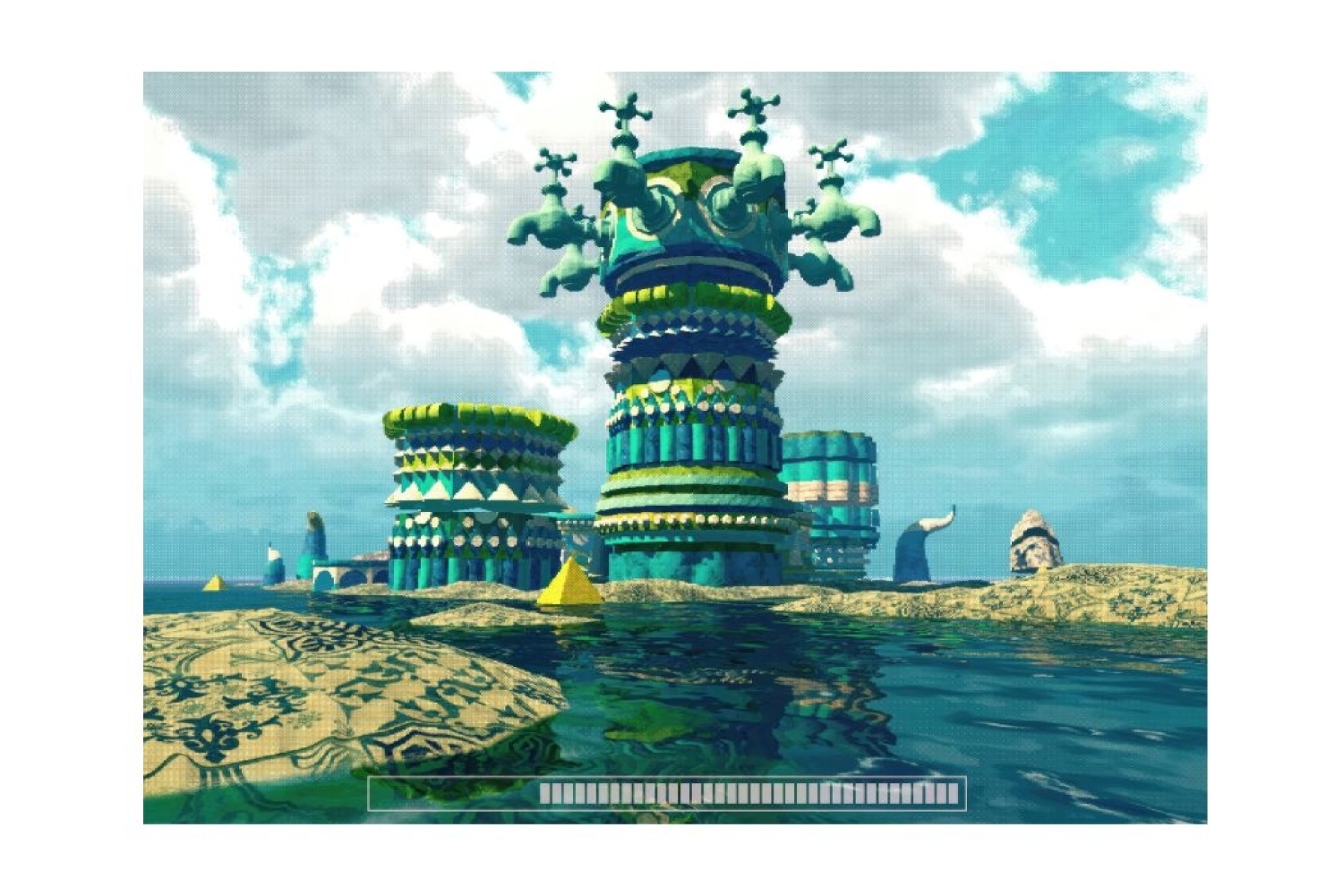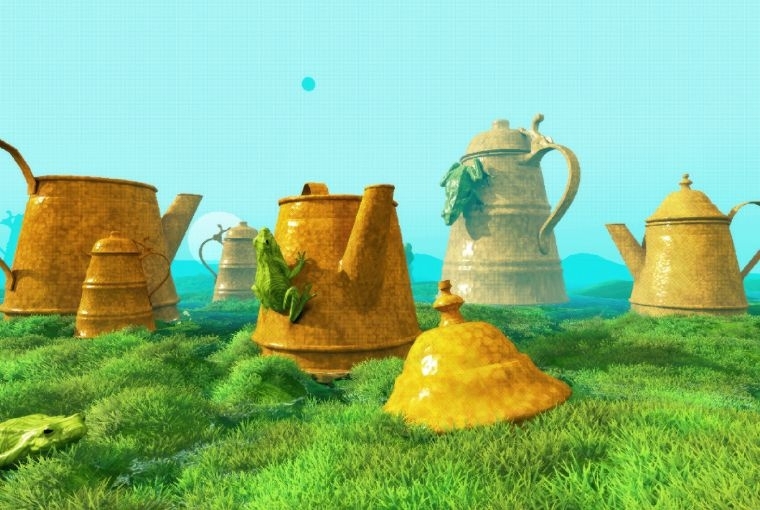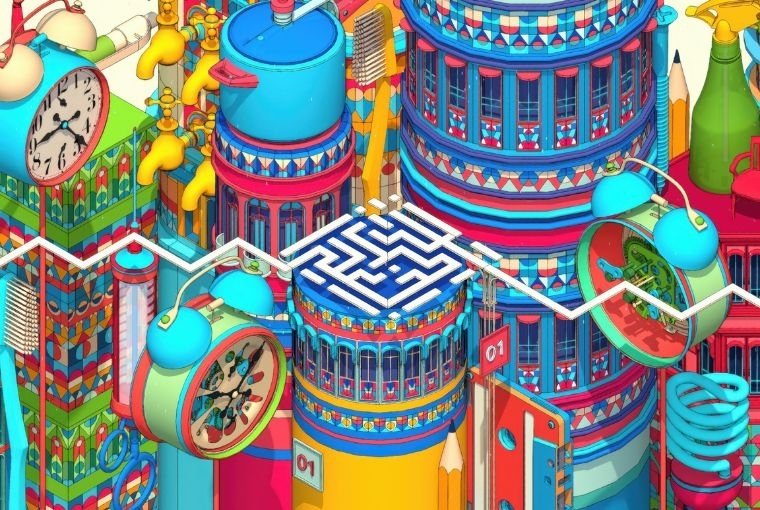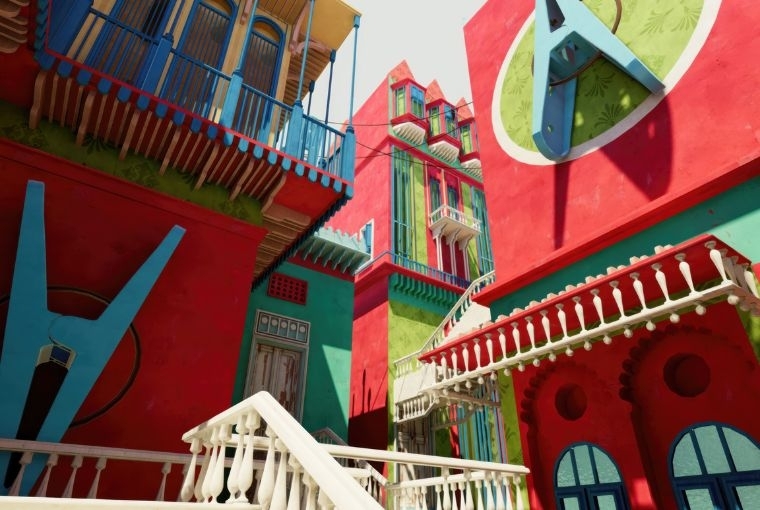
Screenshots from the game : The Indifferent Wonder of an Edible Place. Created as a commission for the Phoenix Gallery, Leicester, 2019. Also shown at VGA, Chicago. Rebuild for single player release a

Screenshots from the game : The Indifferent Wonder of an Edible Place. Created as a commission for the Phoenix Gallery, Leicester, 2019. Also shown at VGA, Chicago. Rebuild for single player release a
Studio Oleomingus, a games and arts studio based in Chala, India, makes projects that are experimental, interactive, and engage with memory, history and forgotten narratives. Their work does not follow the conventional logic of gaming: through games that feel like sites of resistance, they explore erasure, authority, colonization and the messy beauty of multiple truths. Some of their ongoing projects include It Takes A Long Time to Grow a Mountain, a game about geological time within the buried history of Dharampur and Dang and The Hand You Are Dealt, in collaboration with IICSI, a playful digital collection of interactive cards highlighting a decade of their improvisation research through cards filled with audio, visuals and media fragments. In this conversation, Dhruv and Sushant, the founders, speak to us about their beginnings, design ethos and what they’re building next.
Studio Oleomingus
Oleomingus started as an open collaborative, and has now hosted a handful of new-media artists, programmers, authors and musicians and worked on various esoteric game and research projects over the last ten years. Both Sushant and I had just stumbled into the world of experimental videogames and the ruderal communities of gamemakers who were crafting tools and critiquing media from their precarious perches on the margins of the medium. We were both convinced that the video games portended a fundamental shift in how stories are told.
Through substantial support from grants via India Foundation for the Arts and IICSI at Guelph, to residencies at the India Art Fair, to commissions by gallery spaces and museums like V&A and Phoenix, and generous help from fellow-artists like Prayas Abhinav, Gayatri Kodikal, Nicholas O'Brien amongst several others, we have now mutated into a modest, stable, two-person practice where we still collaborate with a small handful of other practitioners and researchers, and try to bend our work towards those spaces we think require urgent intervention.

Screenshots from : Under a Porcelain Sun. An ongoing project originally created as a single screen installation, with support from the Irregular Corporation, Publishers, London. 2020.
Gaming through Interactive Fiction
Games provide a necessary layer of irreverence to confronting difficult stories. It is very hard to play games with cynicism. They require a commitment to the absurdity of their form and a submission to the insularity of their rules, which make them excellent sites of fabulation and provocation. Perhaps even sites of interrogation, reparation and repair.
With each game we enter into a negotiation with our players, a common pact if you will, that for the duration of the game we will together seek myriad and uncomfortable truths about difficult histories. This complicity is the first reason we are fascinated by interactive fiction — an agreement that forces us to share the authorship of our stories with those who will play them.
Interactive fiction has long served as a powerful bulwark against the ahistoric and mendacious pleasures of videogames, and when combined with a capacity to deconstruct narratives of caste, power, gender and statehood, they can become great tools to counter narratives. We have long believed that privilege in various forms withdraws from us the right to consume our histories. And in the overwhelming presence of such hegemony, some stories can simply not be told, because the violence of their recollection and the absurdity of their form is not accommodated in the method of their telling. Interactive fiction, which accounts for the labour of players in reading a text, might indeed be able to accommodate such extremely fragmented records of erased lives.

Screenshots from the game : Folds of a Separation. Created for Fantasia Malware Presents, at ACUD MACHT NEU Berlin. Also shown at Future Landing, at Serendipity Arts Festival 2022.
Design Forward Gaming in India
We are trying to answer questions such as: Can games and game cultures ever become sites of genuine repair and reparation? Can we bring virtual worlds to bear upon the inequities of our material lives? And how do we learn to build generous fantasies in defiance of the great inequities that we are currently beholden to?
We have never advocated for Indian-games or for games to be defined by a national identity. Cultural specificity or better yet communal specificity, yes — but not games bound to, or animated by a national identity. Which I believe is a foolish practice, to lock such a verdant and generous medium to the confines of a territorial identity and to moreover risk the pitfalls of jingoistic nationalism seeping into the heterotopias of gamespace.

Screenshots from the game : In the Pause Between the Ringing. Created as a commission for Videogames : Design/Play/Disrupt exhibition at the Victoria & Albert Museum. London. 2019.
Future Projects
We are rebuilding It Takes a Long Time to Grow a Mountain, which started as a residency project at the India Art Fair. It is a game about sedimentation, myth and tectonic forces and our increasingly entangled relationship with all that which lies buried beneath the volatile crust of our landscapes.
We are also rebuilding Folds of a Separation as a single-screen installation for the Beyond Gravity festival at Dortmund in October, and are crafting an untitled installation for display at the Quest Learning Observatory, Bangalore, in November.
As for writing and research projects, we are collaborating with a performance artist and dancer, on an exploration called: Corpoliteracy of Virtual Bodies with Priyakshi Agarwal, a study of the entanglement of bodies, signs and simulations and the particular confusions that emerge from duplicating bodies in virtual spaces.
This is an article from our September EZ. Read the EZ here.
Words Neeraja Srinivasan
Date 25-09-2025